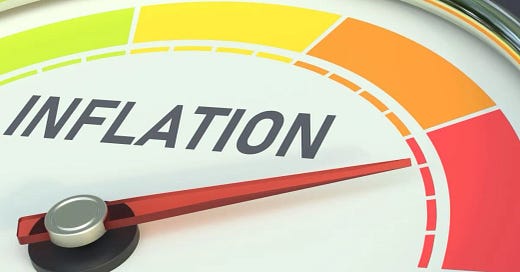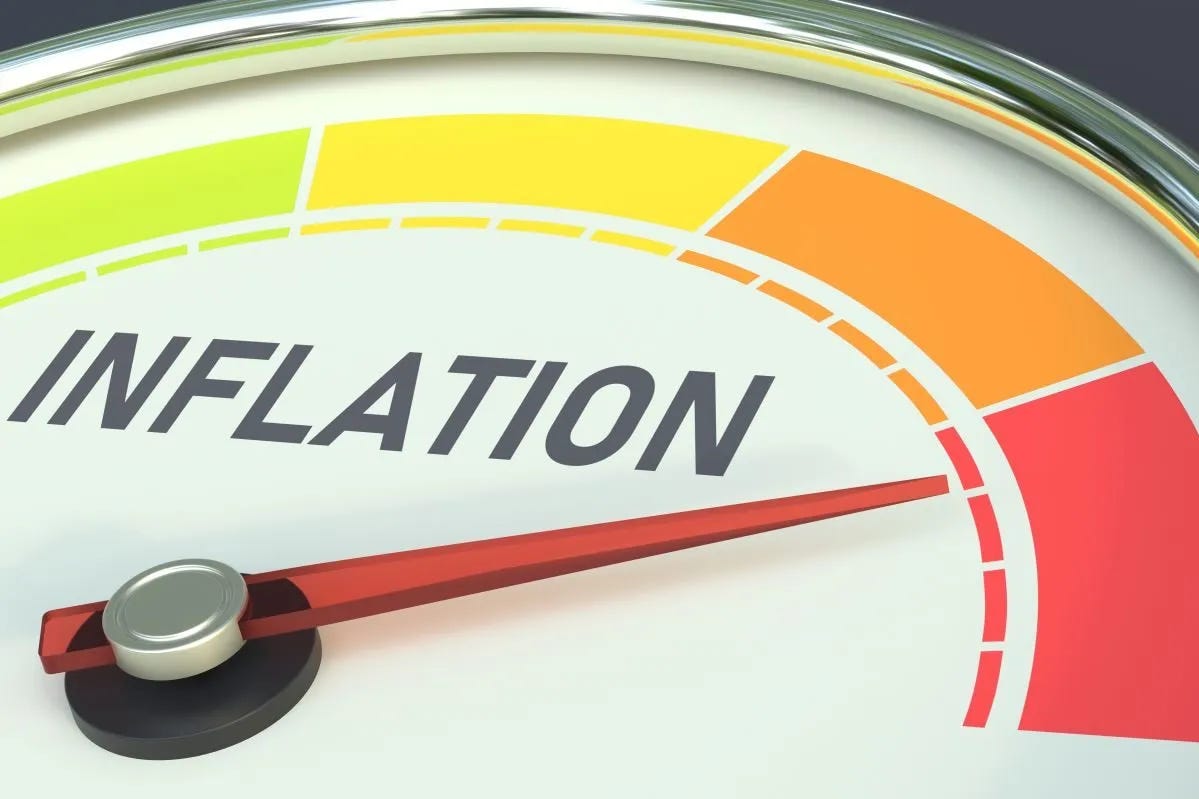Welcome to The Profit Zone, where 12,000+ millionaires, CEO’s and high-performing entrepreneurs read the #1 financial newsletter on Substack, providing you with weekly insights on the stock market and tips you can’t find anywhere else.
If you want the benefits of being a premium subscriber, consider joining on a 14-day free trial.
You can test the waters before making any commitments.
Click below to unlock premium content free of charge for 14 days.
Tweet of the Week
Weekly Market Update 🗒️💡
Upcoming Mortgage Renewals
With the high-interest environment, upcoming mortgage renewals will have a large impact on the Canadian and American economies.
We might see a larger and more severe downturn than was originally anticipated.
I’ll tell you why.
$34 billion in mortgages are set to be renewed by 2027.
When they do, people will be renewing at much higher rates than they are comfortable with.
The domino effect could be tragic.
It’s noted that the majority of homeowners have yet to experience the full effect of rate increases.
Many have fixed mortgages, which have been a savior in this environment but when it comes to renewing those rates, homeowners aren’t going to be too happy.
Analysts have estimated that a 100-basis-point reduction in interest rates would bring a $34 billion impact down to about $23 billion.
This means that rates would have to fall further than 100 basis points to eliminate the impact of these mortgage renewals completely, which is unlikely to happen with the Bank of Canada not specifying when they intend to start reducing rates.
As these mortgages come up for renewal, homeowners will be spending more money out of their pockets for their properties, leading to less disposable income.
The consumer is in a lot of trouble.
My take: if you have a mortgage that is up for renewal in the next 3-5 years, keep some extra cash on the side.
A great place to do this is inside a High Yield Savings Account or a Fixed Income Asset like a GIC or a CD.
Your money will earn interest, hopefully more than inflation, while you wait to see what interest rates do pending your renewal.
It’s always smart to keep some dry powder on the side in these types of economic environments.
Allows for a margin of safety during turbulent times.
My Current Investing Strategy… Hasn’t Changed.
I get asked on a daily basis “How would you invest $5,000 right now?”
My answer is simple:
Keep buying high-quality stocks/ETFs and wait for them to rebound when the economy settles down.
It’s likely your portfolio is down YTD, but that presents an opportunity.
My portfolio is heavily weighted in Financials and REITs.
As you can imagine, these two sectors have been hit hard by the rise in interest rates.
Margins have been squeezed, consumers are defaulting on their loans, and tenants are unable to pay rent.
These companies are struggling.
But as is the case with many market leaders and large companies, it’s not a reflection of poor management but rather a result of the economic environment.
And we know the economy can’t continue this way for long.
Rates have to come down and inflation has to level out.
It always has and it likely will.
The other day, a follower of mine commented on one of my posts.
He said:
“Dividends aren’t guaranteed in the future”
He’s not wrong, but my response may give you some comfort.
Dividends ARE NEVER guaranteed.
BUT many investing strategies are based on the premise of “more likely than not this will happen”.
If you’re a dividend investor, you’re familiar with the dividend kings.
A list of companies that have raised dividends for at least the past 50 years.
It’s an exclusive group that has been able to continuously reward shareholders through recessions, wars, pandemics, and other economic events.
As investors, when we see this type of dividend history, we can be comfortable with the premise of “more likely than not this company will continue raising dividends”.
Successful investors understand this premise.
If the chances of something happening outweigh the chances of it not happening, I’d say that’s a good bet.
It’s why time IN the market is so effective.
The longer you stay invested, the lower your chances of losing money.
Just look at the chart of the S&P 500 and zoom out.
All of your worries will be gone in a second.
Advertise with The Profit Zone
Do you have a business that needs some more exposure?
Want to get more eyes on your products?
Advertise to 12,000+ investors hungry for financial content.
Click here to fill out the form.
The Silent Tax
In the pursuit of financial freedom, every decision you make counts.
Have you ever paused to ponder the profound implications of inflation on your financial journey?
Let's explore this together, as understanding inflation is the key to securing your financial future.
So what’s inflation?
Inflation is the silent tax that’s eating into your purchasing power.
It's the relentless rise in the prices of goods and services over time.
When inflation is high, your money's real value diminishes.
Which means you can buy fewer goods and services with the same amount of money.
But inflation isn't a mysterious force.
It has identifiable sources:
Historically, events like wars (e.g., the Civil War and World War I) and economic disruptions have led to inflation.
Governments printing money to fund these endeavors, coupled with economic upheaval, contribute to rising prices.
A glance at history reveals the impact of inflation:
During the Civil War (1861-1865), the United States experienced inflation exceeding 80%, straining the economy and massively reducing consumers' purchasing power.
World War I (1914-1918) also saw inflation rates exceeding 20% in the U.S. and Canada, with similar consequences.
The 1970s and early 1980s witnessed high inflation rates, with peaks at 14% in the U.S. and 12% in Canada, attributed to factors like oil embargoes and expansionary fiscal policies.
Now why should you care about inflation?
Because inflation affects everyone, including you.
It’s a real challenge especially if you’re striving for financial freedom.
But to face this challenge, you should understand these 3 main threats:
Eroded Purchasing Power: Inflation silently chips away at your ability to buy goods and services, reducing your quality of life.
Savings Challenge: High inflation eats into the real value of your savings over time, necessitating more giant nest eggs to meet your financial goals.
Investment Uncertainty: Predicting the performance of investments during inflationary periods can be challenging, which makes informed decisions crucial.
By now, you should ask yourself…
How do I protect myself and my family from inflation, while still striving for financial freedom?
To safeguard your financial future against inflation's erosive power, apply these steps:






